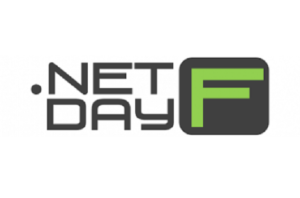Blazor-Gwerch: Dodned im Brausa – echt etz
Single Page Applications (SPAs) schreibt man mit JavaScript, vielleicht auch mit TypeScript - is' so! Mit ASP.NET Core Blazor zeichnet sich eine mögliche Alternative für .NET-Entwickler ab. Auf Basis des Web-Standards Web Assembly stellt es Tooling und eine Runtime zur Verfügung, über die man SPAs mit C# entwickeln kann. In dieser Session zeigt .NET- und Web-Veteran Christian Weyer anhand praktischer Beispiele was mit Blazor bereits in einer frühen Vorab-Version möglich ist, vor allem hinsichtlich "Full Stack"-Programmierung für End-to-End Web-Anwendungen. Als Abrundung beleuchtet er neben den Möglichkeiten auch die Grenzen des Blazor-Ansatzes und vergleicht ihn mit den bislang üblichen Herangehensweisen - pragmatisch und realitätsnah!
Event

Slidedeck
Hallo, .NET Developer!
Du begeisterst Dich für .NET-basierte Cloud-Native-Lösungen?
Du möchtest, dass Deine Expertise zum Einsatz kommt und von einer Expertenschaft gechallenged wird? Du weißt, dass nur durch Research auch während der Arbeitszeit neue Technologien erlernbar sind und erst damit Innovation möglich wird?
Weitere Artikel zu .NET Core, Blazor, PWA, WebAssembly


Advanced Value Object Patterns in .NET


Discriminated Unions in .NET: Modeling States and Variants


Smart Enums in .NET: Integration with Frameworks and Libraries


Value Objects in .NET: Enhancing Business Semantics


Pattern Matching with Discriminated Unions in .NET


